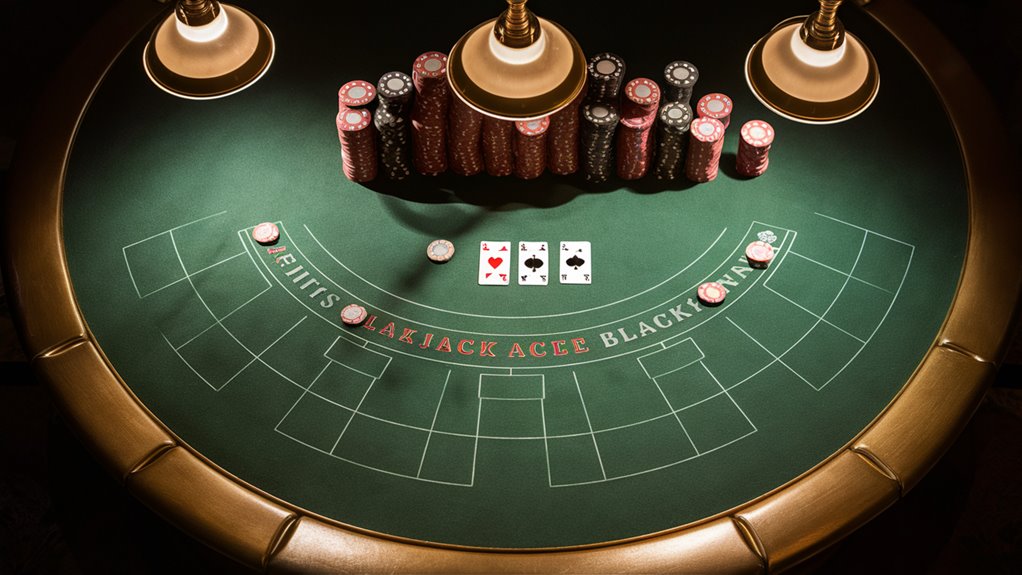The Truth About Poker: Like a Pro

Key Skills for Professional Poker Wins
- High-level poker play requires sharp math skills for quick pot odds and value calculations.
- Great skills in watching others play are key to spotting habits and tiny clues that show what other players are likely to do.
Money Management and Keeping Your Cool
- Smart money handling is key for pros, needing at least 20 times the buy-in for cash games to handle ups and downs.
- Keeping cool and avoiding tilt help top pros stand out from those who don’t do as well.
Main Tactics and Common Errors
- Pro poker plans mean seeing the game as a careful skill, not just gambling.
- Players must dodge common errors like going too far with so-so hands and keep a close eye on their table position.
- Winning calls for careful records of gaming sessions, firm look-backs at past hands, adjusting plans to how the table feels, and always learning better poker moves.
Key Poker Math Every Player Needs
Grasping Basic Poker Math
- Poker math and knowing your chances are core to playing like a pro.
- Getting good at pot odds, implied odds, and value (EV) turns casual players into steady winners.
- These numbers guide the best moves at each part of the game 이 내용을 꼭 확인해보세요
Working Out Pot Odds
- To get pot odds, compare the cost of a call to how much is in the pot.
- Turn these odds into percentages by matching your chance to draw a winning card against the pot odds.
Deep Dive: Implied Odds and EV
- Implied odds look beyond the current pot by thinking about possible future wins.
- Value calculations (EV) mix current pot odds with these implied odds to find out if you’ll likely make money over time.
Putting Math to Use
- Using these math ideas means mastering fast number skills, knowing poker math combos, and understanding draw chances.
- Reading what other players might do and rightly sizing your bets compared to the pot is crucial.
How to Read Poker Players Well
Knowing Player Mindsets and Moves
- Pro-level player analysis goes far past easy tells, using a deep system of reading habits and mindsets.
- Players are often aggressive, passive, tight, or loose, making their moves more predictable.
Timing Tells and Betting Moves
- Timing tells can show how confident a player is in their hand.
- Pro players track many hands to spot breaks from usual betting patterns.
Body Signs and Quiet Signals
- Good physical tells show up by watching groups of moves instead of just one-off actions.
- These signs mean more when they line up with how a person bets over many games.
Advanced Ways to Profile Players
- Deep player study pulls together many facts like spot at the table, chip handling, and bet patterns.
- This full view of poker psychology helps with sharp choices in big-stakes games.
Basic Money Handling for Poker Wins

Need-to-Know Money Tips
- Smart bankroll handling is a must for long-term wins, requiring 20 buy-ins for cash games and 100 for tournaments.
Handling Risk Well
- Sticking to a money plan helps ride out bad times with ideas like dropping down in stakes if needed and keeping track of results.
Being Smart with Your Money
- Keeping game money separate from regular spending and thinking of it as business funds is essential.
- Only taking profits out above a 20% safe margin is recommended.
The Mind Wins Games: Psychology and Poker
The Thinking Behind Top Poker Wins
- Mastering your mind game is crucial for success.
- Winning big takes mental power, keeping emotions in check, and a mindset ready for all scenarios.
Main Parts of Your Mind Game
- Handling tilt and keeping calm are fundamental to a strong mental game.
- Deciding based on numbers alone without past influences is key Protect your gambling
Up-Level Your Mental Skills
- Tracking thoughts during games helps identify and work on mental weak spots.
- Handling inevitable ups and downs keeps choices high-quality regardless of short-term events.
Don’t Make These Poker Mistakes
Pushing Weak Hands Too Far
- One big error is pushing weak hands too hard, especially against strong bets.
- This is often due to the sunk cost error.
Place and Hand Picks
- Forgetting where you sit significantly impacts your game. Remember, place means power in poker.
Handling Your Money and Picking Games
- Good money handling is essential and involves never risking over 5% of your cash in any game.
- Smart game choice is important, picking games where you have a clear edge.
Staying Steady and Not Tilting
- Sticking to your plan and seeing each hand as independent promotes better performance.


